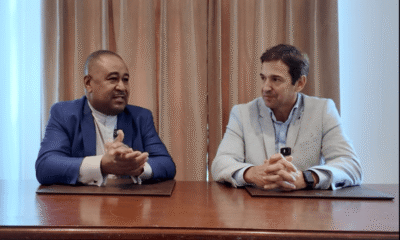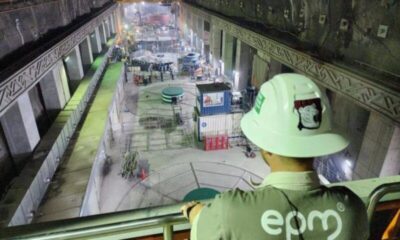Government Approves Funding for $5.2 Billion USD Bogotá Metro and Regional Rail Project
This week, Colombian President Juan Manuel Santos approved financing for the $5.1 billion USD plan to build a metro in Bogotá, expand the city’s existing Transmilenio bus system, and construct a rail project that will connect outlying areas to the capital. “It is the largest investment in the history of Bogotá,” said Santos.
On top of the elevated metro in Bogotá, which will be constructed between 2018 and 2022, the plan calls for a two-tiered expansion of the Transmilenio. The goal is extending service to connect with Soacha, a large lower-class municipality in the south of the city.
The new Regiotram suburban railway will also connect nearby municipalities in the department of Cundinamarca to the capital. “Bogotá and Cundinamarca will thus finally have an integrated, modern transportation system worthy of the 21st century,” said Santos. “Something we have waited for for many, many years — decades — will now finally be a reality.”

An artist rendition of the Regiotram that will connect the capital to outlying municipalities and the planned El Dorado 2 airport to the west. (Credit: National Infrastructure Agency)
The Regiotram project, led by the National Infrastructure Agency (ANI) and government of Cundinamarca department, will include 41 kilometers of railway.
The train will connect Bogotá — where it will have 12 stations within city limits — to the cities of Funza, Madrid, Mosquera, and Facatativá, where the city’s planned second airport, El Dorado 2, will be built. The railway will also include a stop in the current El Dorado International Airport.
The government expects more than 200,000 passengers to use the Regiotram each day. It will begin its daily operation at Avenida Caracas and Calle 19 and feature a stop each kilometer thereafter within the capital. Outside the city, after crossing the Bogotá River, there will be a stations every five kilometers.
Of the government’s total investment, $465 million USD (1.4 trillion pesos) will go to Regiotram. The metro will receive $4.4 billion USD (12.8 trillion pesos), and the remaining $205 million USD (600 billion pesos) will be used for the Transmilenio expansion, according to the president’s office. Additional funding will come from Bogotá.

























